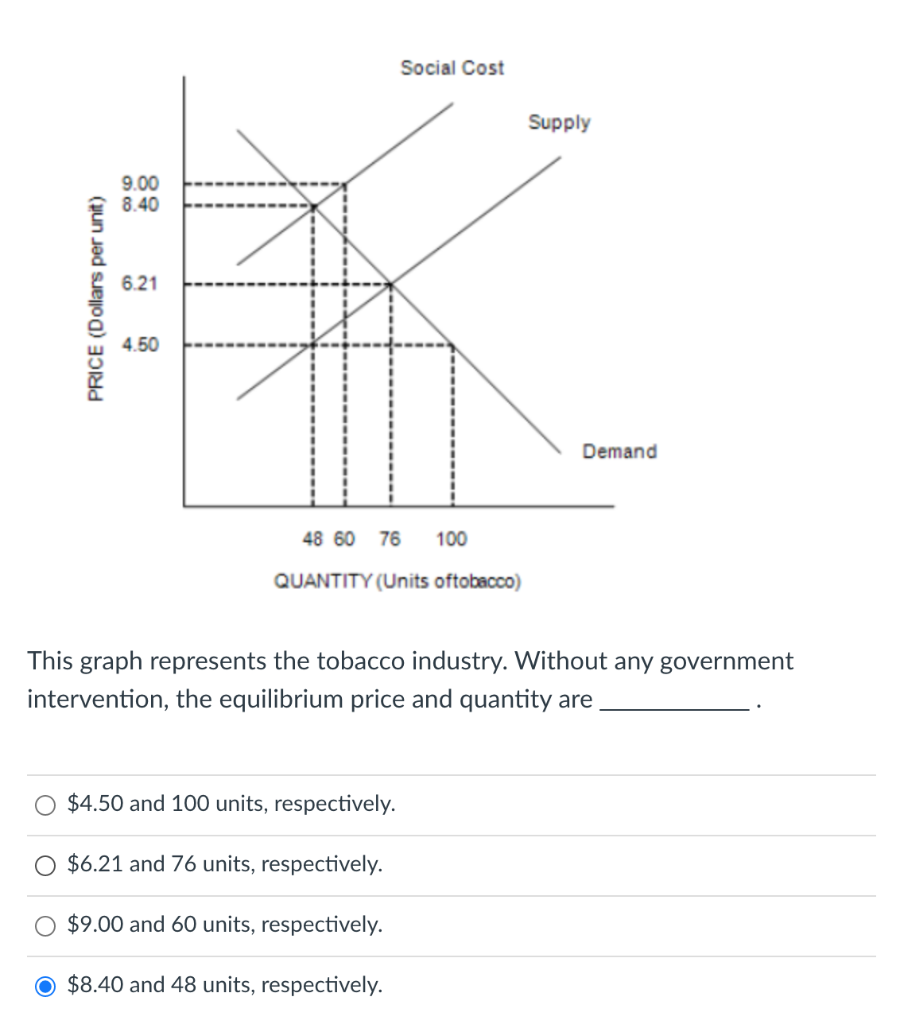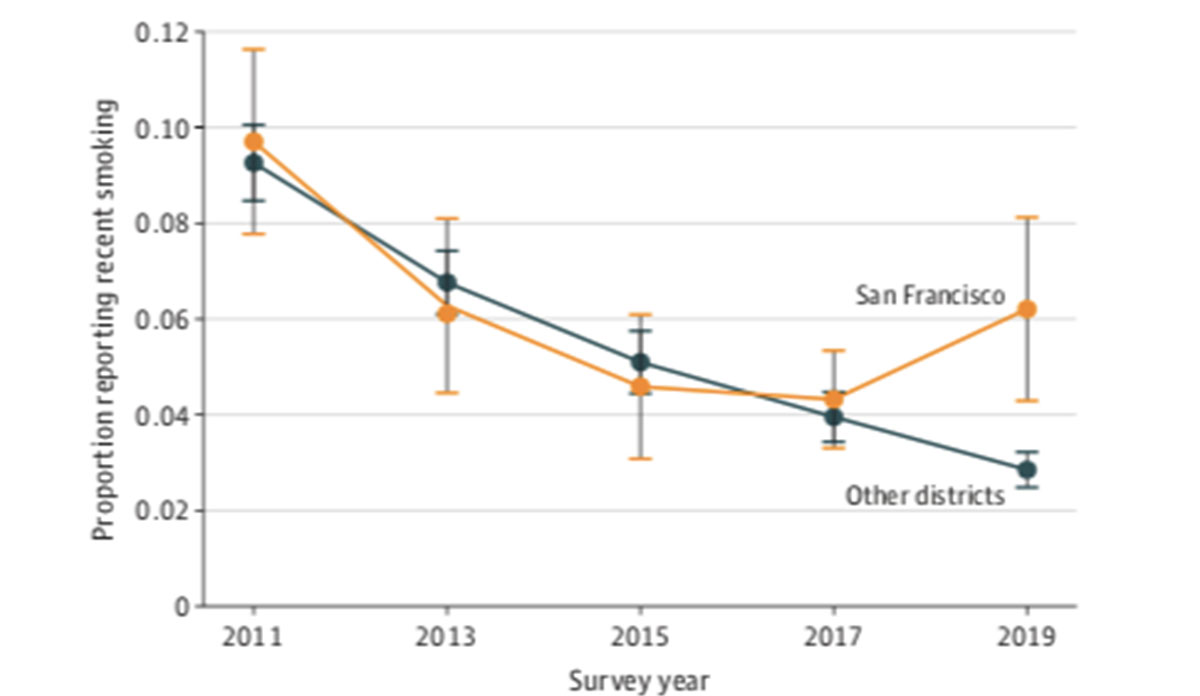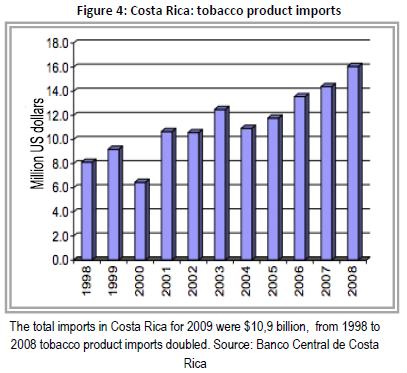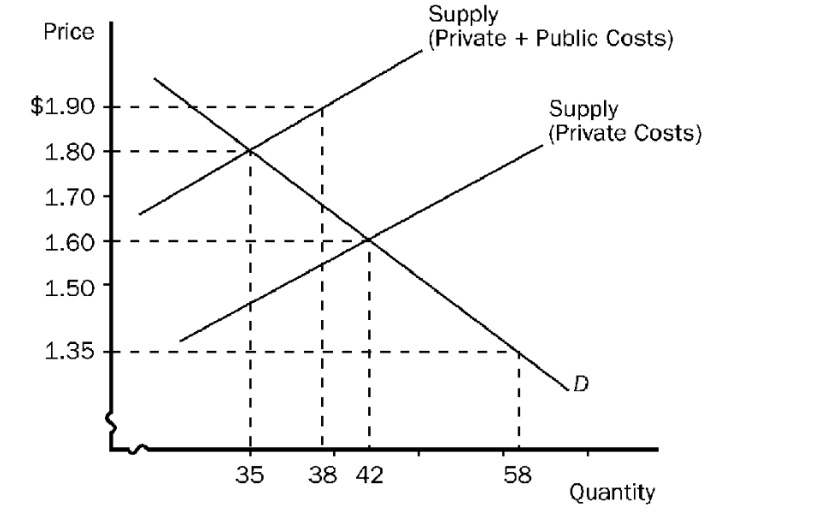Concept explainers Question The graph above represents the tobacco industry. Answer the next questions using this graph. 4.1. Does the industry create a negative or positive externality? Briefly explain. 4.2. Without any government intervention, what are the equilibrium price and quantity? 4.3. What are the socially optimal price and quantity? 4.4.
Tobacco Economics
Jan 10, 2024The leading tobacco company worldwide was the British American Tobacco, generating over 35 billion U.S. dollars in net sales in 2021. With just over 31.5 billion U.S. dollars in sales, Philip

Source Image: chegg.com
Download Image
C. negative externalities. d. no externalities. PRICE (Dollars per unit) Social Cost Supply 3.00 2.80 2.07 1.50 Demand 24 30 38 50 QUANTITY (Units oftobacco) Refer to Figure 10-1. This graph represents the tobacco industry. The industry creates O a. positive externalities. O b.no equilibrium Lsthe market.

Source Image: publichealthpost.org
Download Image
Using Causal Inference to Improve the Uber User Experience | Uber Blog
Business Economics Economics questions and answers Refer to Figure 10-1. This graph represents the tobacco industry. The industry creates Question 4 options: 1) positive externalities. 2) negative This problem has been solved! You’ll get a detailed solution from a subject matter expert that helps you learn core concepts. See Answer

Source Image: uxdesign.cc
Download Image
This Graph Represents The Tobacco Industry. The Industry Creates
Business Economics Economics questions and answers Refer to Figure 10-1. This graph represents the tobacco industry. The industry creates Question 4 options: 1) positive externalities. 2) negative This problem has been solved! You’ll get a detailed solution from a subject matter expert that helps you learn core concepts. See Answer
Created by morgan_cherry1 Terms in this set (21) Refer to Figure 10-1. This graph represents the tobacco industry. The industry creates Negative Externalities Refer to Figure 10-1. This graph represents the tobacco industry. Without any government intervention, the equilibrium price and quantity are $1.60 and 42 units Refer to Figure 10-1.
How effective are tobacco warning labels? | by Elvis Hsiao | UX Collective
This graph represents the tobacco industry. The industry creates: a. positive externalities. b. negative externalities. c. no externalities. d. no equilibrium in the market. B (Negative externalities) Refer to Figure 2. This graph represents the tobacco industry. Without any government intervention, the equilibrium price and quantity are: a. $1
Chart: Global Tobacco Use Is Steadily Declining | Statista

Source Image: statista.com
Download Image
Econ Exam 3 Chapter 10 & 13 Flashcards | Quizlet
This graph represents the tobacco industry. The industry creates: a. positive externalities. b. negative externalities. c. no externalities. d. no equilibrium in the market. B (Negative externalities) Refer to Figure 2. This graph represents the tobacco industry. Without any government intervention, the equilibrium price and quantity are: a. $1

Source Image: quizlet.com
Download Image
Tobacco Economics
Concept explainers Question The graph above represents the tobacco industry. Answer the next questions using this graph. 4.1. Does the industry create a negative or positive externality? Briefly explain. 4.2. Without any government intervention, what are the equilibrium price and quantity? 4.3. What are the socially optimal price and quantity? 4.4.

Source Image: scielo.sa.cr
Download Image
Using Causal Inference to Improve the Uber User Experience | Uber Blog
C. negative externalities. d. no externalities. PRICE (Dollars per unit) Social Cost Supply 3.00 2.80 2.07 1.50 Demand 24 30 38 50 QUANTITY (Units oftobacco) Refer to Figure 10-1. This graph represents the tobacco industry. The industry creates O a. positive externalities. O b.no equilibrium Lsthe market.

Source Image: uber.com
Download Image
Solved Price Supply (Private + Public Costs) $1.90.- Supply | Chegg.com
This graph represents the tobacco industry. Without any government intervention, the equilibrium price and quantity are a. $1.90 and 38 units, respectively. b. $1.80 and 35 units, respectively. c. $1.60 and 42 units, respectively. d. $1.35 and 58 units, respectively. ____ 10. Refer to Figure 10-1. This graph represents the tobacco industry.

Source Image: chegg.com
Download Image
SOLVED: This graph represents the tobacco industry. The industry creates: a. positive externalities. b. negative externalities. c. no externalities. d. no equilibrium in the market. How do you find this out? Supply (
Business Economics Economics questions and answers Refer to Figure 10-1. This graph represents the tobacco industry. The industry creates Question 4 options: 1) positive externalities. 2) negative This problem has been solved! You’ll get a detailed solution from a subject matter expert that helps you learn core concepts. See Answer

Source Image: numerade.com
Download Image
2 PAST TRENDS AND DEVELOPMENTS
Created by morgan_cherry1 Terms in this set (21) Refer to Figure 10-1. This graph represents the tobacco industry. The industry creates Negative Externalities Refer to Figure 10-1. This graph represents the tobacco industry. Without any government intervention, the equilibrium price and quantity are $1.60 and 42 units Refer to Figure 10-1.

Source Image: fao.org
Download Image
Econ Exam 3 Chapter 10 & 13 Flashcards | Quizlet
2 PAST TRENDS AND DEVELOPMENTS
Jan 10, 2024The leading tobacco company worldwide was the British American Tobacco, generating over 35 billion U.S. dollars in net sales in 2021. With just over 31.5 billion U.S. dollars in sales, Philip
Using Causal Inference to Improve the Uber User Experience | Uber Blog SOLVED: This graph represents the tobacco industry. The industry creates: a. positive externalities. b. negative externalities. c. no externalities. d. no equilibrium in the market. How do you find this out? Supply (
This graph represents the tobacco industry. Without any government intervention, the equilibrium price and quantity are a. $1.90 and 38 units, respectively. b. $1.80 and 35 units, respectively. c. $1.60 and 42 units, respectively. d. $1.35 and 58 units, respectively. ____ 10. Refer to Figure 10-1. This graph represents the tobacco industry.